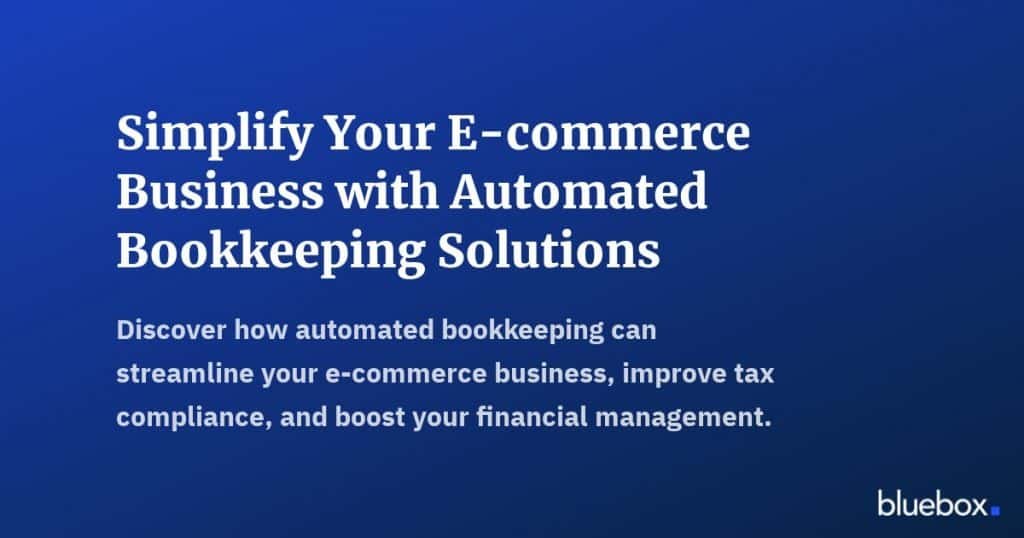As an e-commerce business owner in Singapore, you’re likely juggling many responsibilities. One essential aspect of your business that shouldn’t be overlooked is bookkeeping. Proper bookkeeping not only helps you keep track of your financial transactions but also plays a vital role in ensuring compliance with local tax regulations. In this article, we’ll discuss the unique bookkeeping challenges faced by online stores and present various solutions to help you manage your finances effectively.
The Importance of Bookkeeping for E-commerce Businesses
Effective bookkeeping is crucial for any business, but it’s especially important for e-commerce companies. Here are some reasons why:
Tax Compliance
Proper bookkeeping helps ensure compliance with Singapore’s tax regulations, such as the Goods and Services Tax (GST) and corporate income tax.
Cash Flow Management
Keeping accurate records of your financial transactions allows you to monitor your cash flow, helping you make informed decisions about investments and expenses.
Inventory Tracking
Accurate bookkeeping enables you to track inventory levels and identify trends in sales, allowing you to optimize your product offerings and improve customer satisfaction.
Unique Bookkeeping Challenges for Online Stores
E-commerce businesses face several unique bookkeeping challenges, including:
- Sales Tax Management: With customers potentially located all over the world, understanding and managing sales tax requirements can be complex.
- Inventory Tracking: Unlike brick-and-mortar stores, e-commerce businesses often need to track inventory across multiple warehouses, third-party logistics providers, and dropshippers.
- Payment Processing Fees: Online stores typically rely on payment gateways and processors, which charge fees that must be accounted for in your bookkeeping.
Bookkeeping Solutions for E-commerce Businesses
There are several bookkeeping solutions available to e-commerce business owners, including software tools, professional services, and DIY methods. Let’s explore each option in more detail.
Software Tools
There is a wide range of accounting software available that cater specifically to e-commerce businesses. Some popular options include:
These tools offer various features, such as sales tax management, inventory tracking, and payment processing fee reconciliation. When choosing an accounting software, consider factors like your budget, the size of your business, and the level of customization you require.
Professional Services
Hiring a professional bookkeeper or accountant can save you time and ensure your financial records are accurate and compliant with local tax regulations. Professional services are particularly beneficial for larger e-commerce businesses or those with more complex financial needs.
DIY Methods
If you prefer a hands-on approach, you can choose to manage your bookkeeping manually using spreadsheets or other record-keeping methods. This option might be suitable for smaller businesses with straightforward finances. However, as your business grows, you may find it more challenging to maintain accuracy and efficiency with a DIY method.
Comparing Bookkeeping Solutions
To help you decide on the most suitable bookkeeping solution for your e-commerce business, consider the following factors:
- Size of Your Business: Larger businesses generally have more complex financial needs, making professional services or comprehensive accounting software more appropriate.
- Industry: Specific industries may have unique bookkeeping requirements, so choose a solution that caters to your niche.
- Budget: Software tools and professional services come at varying price points, so consider your budget when selecting a solution.
User Testimonials and Case Studies
To illustrate the effectiveness of various bookkeeping solutions, we’ve gathered some testimonials and case studies from e-commerce business owners in Singapore:
- Case Study 1: Jane, the owner of an online fashion boutique, uses QuickBooks Online to manage her finances. She says, “QuickBooks has been a lifesaver for my business. It’s user-friendly and helps me keep track of my sales, expenses, and inventory effortlessly.”
- Testimonial 2: Michael, who runs a specialty food store online, opted for professional bookkeeping services through Bluebox. He shares, “Hiring a professional bookkeeper was the best decision I made for my business. They handle all the complex tax and accounting matters, allowing me to focus on growing my business.”
Choosing the Right Bookkeeping Solution for Your E-commerce Business
To select the most suitable bookkeeping solution for your online store, consider the following steps:
- Assess your business’s unique needs, such as size, industry, and budget.
- Research various software tools and professional services to find one that aligns with your requirements.
- Consult user testimonials and case studies to gauge the effectiveness of different solutions.
- Reach out to experts or fellow e-commerce business owners for recommendations.
In conclusion, proper bookkeeping is essential for e-commerce businesses to ensure tax compliance, effective cash flow management, and accurate inventory tracking. By carefully considering your business’s unique needs and researching various software tools, professional services, and DIY methods, you can find the ideal bookkeeping solution to help your online store thrive.
Additional Resources for Further Learning
- How to Choose the Best Accounting Software
- E-commerce Bookkeeping Best Practices
- Understanding Sales Tax for E-commerce Businesses
- Inventory Management Tips for Online Stores
TL;DR
| Topic | Summary |
|---|---|
| Importance of Bookkeeping | Bookkeeping is crucial for e-commerce businesses to ensure tax compliance, cash flow management, and inventory tracking. |
| Unique Challenges | Online stores face challenges such as sales tax management, inventory tracking across multiple locations, and payment processing fees. |
| Software Tools | Popular accounting software options include QuickBooks Online, Xero, Zoho Books, and Wave. |
| Professional Services | Hiring a professional bookkeeper or accountant can be beneficial for larger businesses or those with complex financial needs. |
| DIY Methods | Smaller businesses may opt for manual bookkeeping using spreadsheets, but this may become challenging as the business grows. |
| Comparing Solutions | Consider factors like the size of your business, industry, and budget when selecting a bookkeeping solution. |
| User Testimonials & Case Studies | Testimonials and case studies demonstrate the effectiveness of various bookkeeping solutions for e-commerce businesses. |
| Choosing the Right Solution | Assess your business’s unique needs, research options, consult user testimonials and experts, and reach out to fellow e-commerce business owners for recommendations. |
